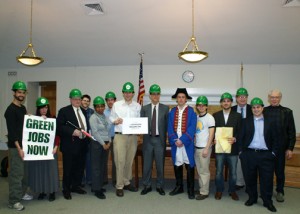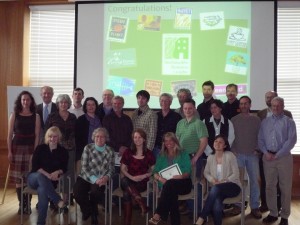 Since the beginning of April, 2010, Target has launched a massive nationwide recycling initiative in its 1,740 U.S. stores. The recycling stations will accept aluminum, glass and plastic beverage containers, plastic bags, MP3 players, cell phones and ink cartridges. Making it easier for some communities without curbside recycling to reduce the amount of material burned or buried, and for others to recycle some specialized goods.
Since the beginning of April, 2010, Target has launched a massive nationwide recycling initiative in its 1,740 U.S. stores. The recycling stations will accept aluminum, glass and plastic beverage containers, plastic bags, MP3 players, cell phones and ink cartridges. Making it easier for some communities without curbside recycling to reduce the amount of material burned or buried, and for others to recycle some specialized goods.
“The launch of store recycling stations allows us to continue to partner with [our guests] to curb unnecessary waste in our stores and our communities,” said Shawn Gensch, vice president of brand marketing.
Target is developing all kinds of sustainability programs to improve its green image, including programs to green its supply chain, use less energy and produce less waste. Of course, one of the motivations of Target is to become more sustainable than its megastore competitor, Walmart, contributing to a ‘race to the top’. But Target isn’t just copying some existing sustainability programs, they’re forging their own path with some unique programs of their own, recently announcing they would no longer sell farmed salmon.
For more information : Target Opens Recycling Centers in All 1,740 Stores
Also, don’t forget that the City of Cambridge also has a mandatory curbside recycling program, with DPW drop-off for many other kinds of items.










